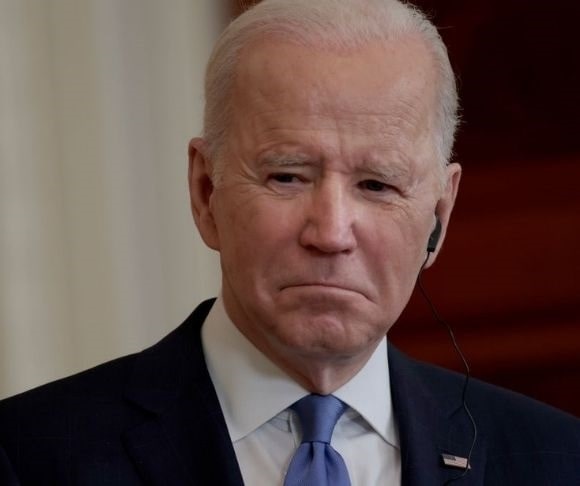Does anyone believe new nuclear talks with Iran will turn out better for the United States? True to form, when Secretary of State Antony Blinken sits down with his Tehran counterparts, he gives up something first thing. Before talks between Iran and Biden’s negotiators take place, according to Fox News, “Secretary of State Antony Blinken signed a waiver that restored the ability of foreign companies and other countries to participate in civilian nuclear and safety projects in Iran without facing U.S. sanction.”
 This relief comes as Tehran’s tough-talking new president, Ebrahim Raisi, has increased Iran’s aggressive actions in the region. According to the logic of a senior State Department official, the waiver is “essential to ensuring Iran’s swift compliance with its nuclear commitments.” This hard-hitting negotiation tactic can be summed up as: “Pretty please, if we are nice to you, will you be nice to us?”
This relief comes as Tehran’s tough-talking new president, Ebrahim Raisi, has increased Iran’s aggressive actions in the region. According to the logic of a senior State Department official, the waiver is “essential to ensuring Iran’s swift compliance with its nuclear commitments.” This hard-hitting negotiation tactic can be summed up as: “Pretty please, if we are nice to you, will you be nice to us?”
This act of diplomatic supplication came a day before Iranian-backed militias attacked the U.S. embassy in Bagdhad on Jan. 13. And according to Adam Shaw, reporting for Fox News, “Iranian dissidents are warning that the brutal regime in Tehran is creating a proxy naval force in the region with which it intends to attack ships and help the embattled Houthi forces in Yemen.” The Houthi Iran-backed militias have taken over much of Yemen and carried out numerous terrorist acts against Saudi Arabia and the United Arab Emirates. This is the same terrorist organization the Biden administration deleted from the list of Foreign Terrorist Organizations, allowing members to travel more freely internationally. In addition, the National Council of Resistance of Iran, an organization opposing the current regime in Tehran, issued a report that details Iran’s recruitment of mercenaries among accomplished terrorists “to attack ships and maritime targets in the region.” The report also stated: “… the destructive intervention of the Quds Force [a branch of Iran’s Revolutionary Guard Corps used for unconventional warfare] in the region has intensified, as have Tehran’s UAV [Unmanned Aerial Vehicles] and missile attacks.” Nonetheless, Biden and his diplomatic team are obsessed with getting a nuclear agreement with these fine, upstanding global citizens.

Joe Biden (Photo by Anna Moneymaker/Getty Images)
In a Washington Times article, Jed Babbin, a former deputy undersecretary of defense, explained that even Blinken’s negotiating team members are not convinced of the wisdom of the United States attempting to resurrect the Joint Cooperative Plan of Action (JCPOA). Said Babbin, “Now because of his [Biden’s] weakness while trying to negotiate a new deal, some of his lead negotiators are quitting … First among those who have quit Mr. Biden’s team is Richard Nephew, the deputy special envoy for Iran.” Nephew was pushing for a stronger position against Iran. Another two members have also left the team.
The problem is that Blinken and his team are using the original flawed 2015 JCPOA as a baseline in talking about reducing Iran’s capability to produce a nuclear weapon. In a tweet, State Department spokesman Ned Price said the Biden administration wants a return of Tehran’s “commitments under the JCPOA.” When your assumptions are wrong, getting to a useful end is far more difficult. You will recall the Obama negotiators came up with the JCPOA agreement, which:
- included a worthless inspection program, giving Iran ample time to cover up any violations;
- did not receive U.S. Senate ratification;
- paid Iran $150 billion in pallets of cash to finance terrorist activities, including attacks on U.S. forces in Iraq;
- allowed Iran to continue to develop long-range missiles;
- did not dissuade Tehran from underwriting Hezbollah, Hamas, and other assorted terrorists;
- did not prevent Iran from attaining nuclear weapons in the future; and
- contained a classified annex, so the public could not see what else was given away.
Therefore, Blinken and his band of negotiators should tell Iran that sanctions will be lifted when a negotiated agreement is signed and not before, and that agreement must get U.S. Senate ratification. Furthermore, the deal will have no classified annex, will not include any cash payments from U.S. taxpayers, will include limits on long-range missile development, will be null and void with the reimposition of sanctions if Iran continues to fund terrorists, and, of course, will require Iran to stop its nuclear weapons development and destroy any equipment designed for that purpose. Also, the agreement should include no-notice inspections to keep Tehran honest and insist on compliance in all matters. Short of these basic conditions, the economic sanctions, all of them, should be retained.
The views expressed are those of the author and not of any other affiliation.
~ Read more from Dave Patterson.




